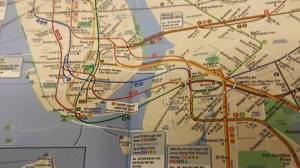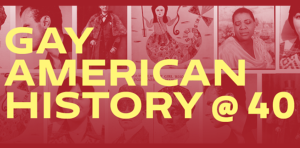 It was like my bookshelf came to life! The Gay American History @ 40 conference in New York in May 2016 gave me a unique opportunity to meet with and engage with my ‘heroes’, the LGBT scholars whose pioneering work has inspired and stimulated my own work.
It was like my bookshelf came to life! The Gay American History @ 40 conference in New York in May 2016 gave me a unique opportunity to meet with and engage with my ‘heroes’, the LGBT scholars whose pioneering work has inspired and stimulated my own work.
I have long admired, and been inspired by, the work 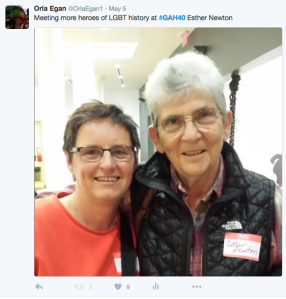 of John D’Emilio, Jonathan Ned Katz, Esther Newton and the many other LGBT historians who gathered together at this conference – their scholarship and activism has motivated me to want to work on documenting, analysing and sharing the rich history of the Cork LGBT community. At the early stages of my own work on the Cork LGBT Archive, John D’Emilio had taken the time to engage in email discussions with me, providing invaluable advice and encouragement. It was a pleasure then to be able to meet him at the conference, to be able to meet and engage with my ‘heroes’ and to be present for a stimulating, and at times heated, discussion on the current state of LGBT history.
of John D’Emilio, Jonathan Ned Katz, Esther Newton and the many other LGBT historians who gathered together at this conference – their scholarship and activism has motivated me to want to work on documenting, analysing and sharing the rich history of the Cork LGBT community. At the early stages of my own work on the Cork LGBT Archive, John D’Emilio had taken the time to engage in email discussions with me, providing invaluable advice and encouragement. It was a pleasure then to be able to meet him at the conference, to be able to meet and engage with my ‘heroes’ and to be present for a stimulating, and at times heated, discussion on the current state of LGBT history.
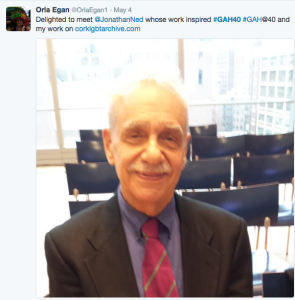 Gay American History @ 40 was a combination conference, a reunion of academic / activist comrades and a tribute to the inspirational work of Jonathan Ned Katz. The conference marked the fortieth anniversary of Jonathan Ned Katz’s Gay American History: Lesbians and Gay Men in the USA (1976) and it provided an opportunity to discuss the ways in which theories, categories, research methods and priorities have been constructed, challenged, and reconstructed over the last forty years of historical research on sexuality and gender.
Gay American History @ 40 was a combination conference, a reunion of academic / activist comrades and a tribute to the inspirational work of Jonathan Ned Katz. The conference marked the fortieth anniversary of Jonathan Ned Katz’s Gay American History: Lesbians and Gay Men in the USA (1976) and it provided an opportunity to discuss the ways in which theories, categories, research methods and priorities have been constructed, challenged, and reconstructed over the last forty years of historical research on sexuality and gender.

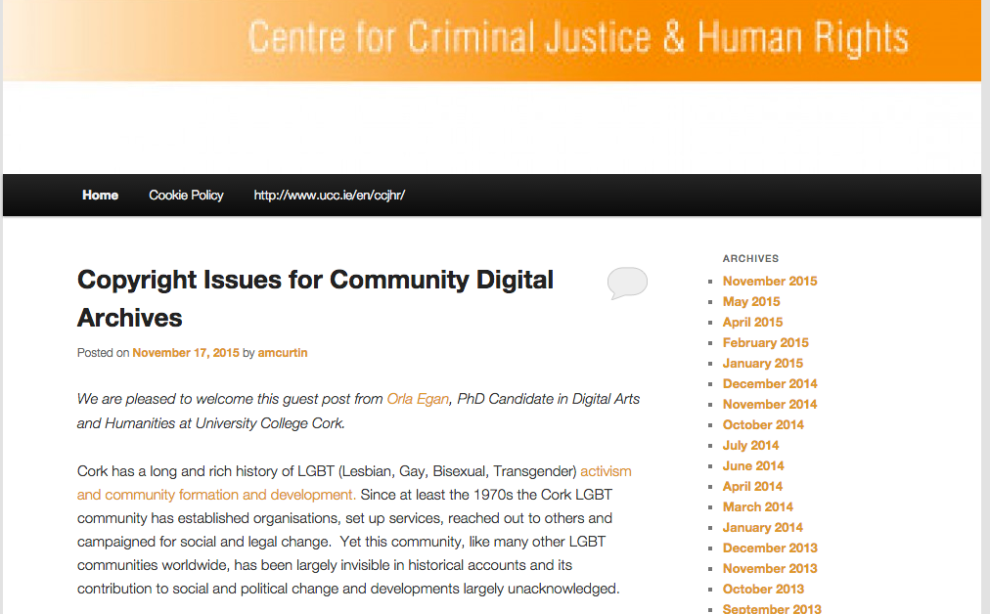
 I am a Digitally Challenged Digital Humanist.
I am a Digitally Challenged Digital Humanist.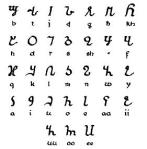 people speak a language I do not understand. The Humanities side is fine, I speak that language, but I’m new to the Digital.
people speak a language I do not understand. The Humanities side is fine, I speak that language, but I’m new to the Digital.